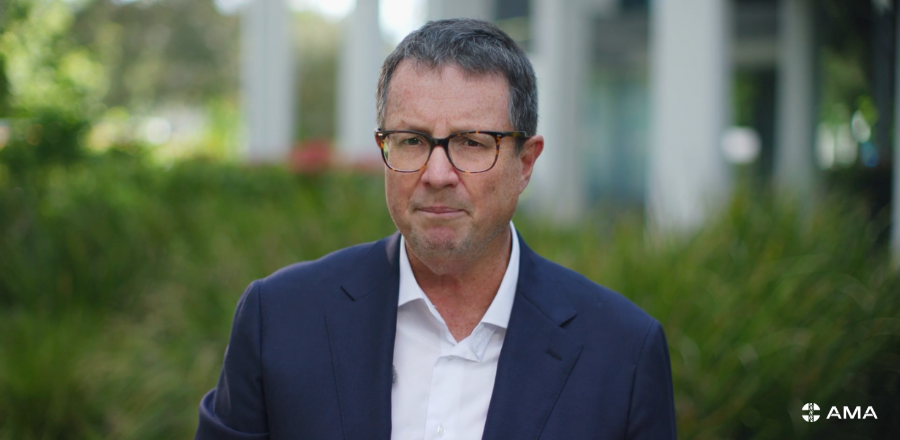Questions must be answered on pharmacy prescribing trials
State governments have a responsibility to answer questions about why they are determined to move Australians to a second-class health system and put patient safety at risk through pharmacy prescribing trials.

Australian Medical Association President Professor Stephen Robson launched a video today posing six questions to state governments about pharmacy prescribing trials and the decisions that led to their implementation.
Professor Robson said these trials presented a clear risk to patient safety; ignored ethical concerns regarding separating prescribing and dispensing of medicines and could lead to an increase in anti-microbial resistance and the emergence of more superbugs.
“Responding to GP shortages with second-class policy solutions that trample over the advice of independent bodies like the Pharmacy Board of Australia and the Therapeutic Goods Administration and bypass established national processes that exist to protect patient safety isn’t the answer.
“GPs train for 12–15 years to have the expertise to diagnose conditions that are being covered in some of these trials. You can’t replace that training and experience with a few hours of weekly online training without putting patients at risk.
“General practitioners are highly skilled and equipped to diagnose the difference between a UTI and other serious and potentially deadly health conditions. They are equipped to take a full medical history of their patients and understand the full range of contraceptive options available to women.
“A second-tier health system that moves the costs of health services from the government to the patient (except for Victoria which is proposing to cover some of the costs) isn’t the solution.
“The AMA wants to work with pharmacists to develop models where we can contribute more to the delivery of health care in safe and collaborative ways. Unfortunately, these models being pushed do the opposite. They fragment care and lead to negative health outcomes, as we have seen in Queensland.”
Professor Robson said the prescribing trials also had the potential to make anti-microbial resistance worse, by driving up the unnecessary use of antibiotics.
“We need to improve out stewardship of antimicrobial resistance, not weaken it through schemes that could make the problem worse through inappropriate and unnecessary prescribing.”
Six questions for governments about pharmacy prescribing trials (Video)
Six questions for governments
- What are you doing to make sure there’s no potential conflict of interest in these trials?
- Why are you blocking some of the most vulnerable women from access to the full range of contraceptive options?
- Why do you think it’s acceptable to shift the cost of paying for medicines from the government to the patient?
- Why are you ignoring the advice of Australia’s medicines regulators in deciding what can be prescribed in a pharmacy?
- Why are you ignoring the position of the Pharmacy Board in determining that pharmacists can autonomously prescribe the medications they sell?
- When did you determine that your citizens no longer deserve the world class care provided by GPs?



